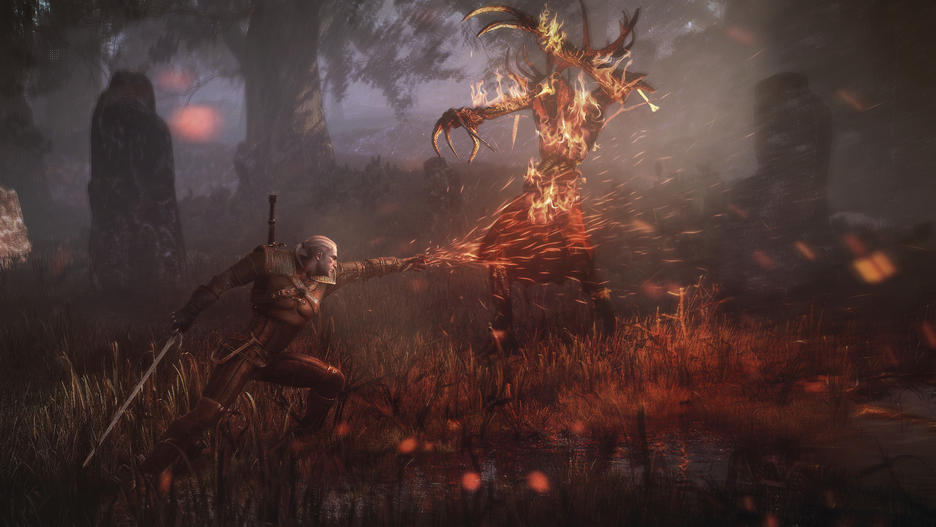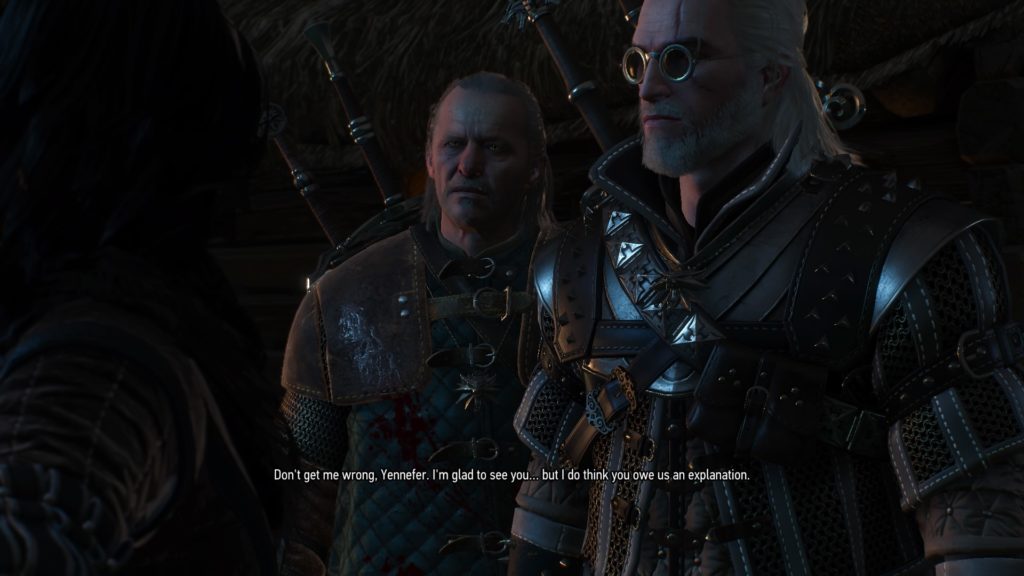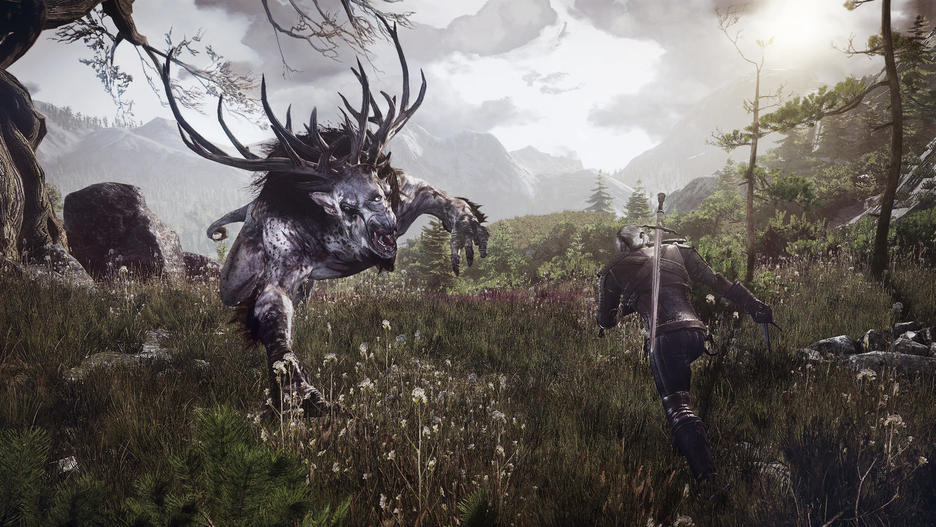After binging ‘The Witcher’ Netflix series I downloaded ‘The Witcher 3: Wild Hunt’ to learn more about the lore and where the next season will be going. Having now spent 300 hours finishing every single quest in the game (including both DLCs), here are Tips and Tricks that most guides aren’t telling you.

With stellar graphics, well-crafted characters, and a deep branching storyline with heavy in-game choices, ‘The Witcher 3: Wild Hunt’ was a phenomenal game for its time. Paying homage to both folklore and fairies in a grim tale filled to the brim with detail. Taking on a life of its own.
Which, in all this excitement, left several loopholes to exploit in the gameplay. For all the wonderful things The Witcher 3 does right in its design, combat, and story – there was actually quite a bit wrong in terms of its gameplay and in-game economy. This is why many early game guides became a bit obsolete, as tricks such as cow farming or breaking down shells to pearls in the market: no longer work. Strategies in how to kill supposedly late-game bosses (like the cow fiend. Which was added when attempting to patch the cow exploit) at level 1, or even juggle both in-game romances between both Yennefer and Triss (You can only say I Love You to One of Them), have been resolved by the company.
The developer, CD PROJECKT RED, had eventually found most of these loopholes and if not fixed them, then had patched them. If not by eliminating the exploits then by using its own in-game quest patch, as you’ll later learn once you’ve earned a great deal of coin and the ‘tax quest’ appears. But thankfully at this point, the company is more interested in developing ‘Cyberpunk 2077’ and its many, many, editions, rather than continue patching ‘Witcher 3.’ Which means, all the remaining coin exploits, strategies, and techniques left in the game that work, are very likely here to stay this time.
That said, here are some TIPS for those new to the game and who want to perform a perfect run, or just make their lives easier on their first time playing.
GAME TIPS

FIRST, WHY ECONOMY IS KEY
Weird to admit this but much of this game is just item sorting and seeing what items sell for the best profit. Which is why you need to toss a coin to your Witcher for a reason. The in-game economy requires A LOT of money and doesn’t make it easy to earn on the initial playthrough. The biggest expenses coming down to…
- Grandmaster Witcher Armor (Blood and Wine DLC)
- Building Your Winery/House at Corvo Bianco (Blood and Wine DLC)
- Unlocking the Runewright and building his business (Heart of Stone DLC)
- Alchemy Ingredients (White Gull mostly) for all the decoctions in-game.
And if you’re like me and most of us who downloaded the game after watching the Netflix series, you’ll likely have also bought the DLC bundle that came with it. So if you’re going for EVERYTHING on your first run, you’re probably looking at a whopping 300,000 coin or more that you’ll need to earn in-game from beginning to end. Depending on how many rare items you salvage/find.
For context: collecting every sunken treasure in Skellige only nets you around 40-50k. So, you need to earn huge profits to do a single run and hope to unlock everything.
EASIEST WAY TO EARN COIN
To be blunt, HANSE bases in the Blood and Wine DLC are the best place to farm gear-for-coin. Or, if it’s early/mid game, loot all the ‘?’ chests littered throughout Skellige. With an interactive map of all of Skellige here.
The easiest way to earn is to loot everything and sell it to the right dealer. Most items can be kept to a maximum of 20, with the excess sold on almost everything, minus these select things…
WHAT ITEMS TO KEEP
- Minerals, gemstones, infused crystals, and dusts – All of which you’ll need for crafting. Most of which, you’ll find on the occasional chest or wraiths (who drop rare dusts).
- Meteorite and Dark Iron/Steel related items – Needed for all the Witcher gear but especially to build enriched dimeritium plates. Better to hoard a lot of these all-game as you’ll save TENS OF THOUSANDS in coin.
- Gold, Silver, Copper, and Nickel – Needed to build the ingredients for dimeritium ores, which build ingots, that build dimeritium plates.
- Chitinous Shell/Cured Draconid Leather and Hardened Leather – Essential for late-game gear. Also, hunt for centipedes and breakdown their loot for Acid in Blood and Wine DLC. This makes Infused slyzard hides.
Again, all of this is meant to construct the Grandmaster Witcher sets late in the game. Armors that are, honestly, absolutely worth it as they’re both overpowered in a fun way and serve as decorative trophies for your home. The Grandmaster sets are so fun that you’re going to want to bring them over to New Game+.
Speaking of New Game+, anything you want to keep/carry over to your new file you can place into your storage chest. Including decorations (paintings, armors, and tiny genitals statue too) and equipment (grandmaster swords/armors).
BEST PLACES TO SELL ITEMS
These are the proven best places to sell items for the most profit as of 2020. After all the patches and final updates.
Food and Drink:
- White Orchard, Alchemist – Tomira, whom you met early-game. Her hut’s conveniently right by the signpost too and she buys honeycomb at the highest rate in the game (6 or 7 crowns). I came here often for alchemy ingredients. Also sells the white gull recipe you’ll need in-game.
- Inn at the Crossroads, Innkeeper – One of the first innkeepers you can challenge in Gwent for a card. He’s the one you asked details about Bloody Baron in one of the first quests into Velen.
- Lindenvale, Innkeeper – He’s inside the tiny town inn to the left. The outer foregrounds, being where you had a Velen boxing match. His rates match the Inn at the Crossroads.
Alchemy:
- Novigrad, Merchant’s Square Fish Seller – This is also where I got most of my ingredients for white gull as he sells mandrake and cherry cordial in abundance. You’re going to need a LOT of white gull to craft alchemy ingredients and rare items.
- Novigrad, Merchant’s Square Herbalist.
- Novigrad, Halfling Herbalist Store by the waterfront – A bit northwest of Rosemary and Thyme.
- Oxenfurt, Halfling Herbalist North East of the City – Has a hut and says he understudied with Gremist, the master alchemist you meet in Skellige.
Weapons:
- Novigrad, Eibhear Hattori – Besides being an obvious ‘Kill Bill’ reference (A master swordsmith who makes sush… ahem… dumplings), Hattori will become your best exclusive crafter most of the game once you unlock him by finishing his quest. He’s a master level crafter in the city who also has some of the best payouts for both weapons and crafting materials. He also has the most coin in Novigrad. Hattori should be your blacksmith for almost everything, and your first option when selling excess or rare swords (I don’t bother keeping rare swords unless I want it as decoration as The Witcher gear ones are always better).
- Novigrad, Blacksmith – He’s the journeyman level one in a corner of the fish market located between Merchant’s Square and Hattori. His coin is very limited, however, and he pays slightly less than Hattori, but he is a nice in-between visit on occasion.
- Skellige, The Blacksmiths at Kaer Trolde and Kaer Muire – Technically, both are journeyman level so they should have similar selling rates as the Novigrad Blacksmiths… but they still can’t match Hattori’s selling rates. Only use them if you’re desperate in Skellige and don’t feel like traveling back to Novigrad.
Armor and Horse Gear:
- Novigrad, Merchant’s Square “TOP NOTCH SWORDS” Armorer – Oddly enough, he’s the best person to sell armor to in the game as he has a large pool of crowns. With selling rates similar to Mastercraft armorers.
- Skellige, The Armorers at Kaer Trolde and Kaer Muire – Same ordeal as their blacksmiths listed above: easy access in Skellige but a bit worse rates than in Novigrad.
- NOTE: Avoid Selling in Crow’s Perch – Velen sucks for so many dreadful reasons in this game, including its broken in-game economy, as the rates for the master crafting dwarf are actually at the amateur levels and for some reason, the ‘actual’ master-level crafter here doesn’t have good selling rates despite the large pool of coins.
Junk:
- Novigrad, Merchant’s Square – The merchant who sells teapots and candelabras. This is a good place to purchase silver related goods to breakdown at Hattori’s (surprisingly, you can run low on silver late game due to all the crafting. Especially when you need silver powder).
- Novigrad, Merchant’s Square – The book dealer closest to the armorer. He also buys the books and notes at a good price.
Books:
- Novigrad, Merchant’s square – The same guy listed above.
- Novigrad, Merchant’s square – Bookshop of Marcus TK Hodgson.
THE BLOOD AND WINE DLC:
Behold Toussaint. Meant to be experienced as a separate game on its own.
Once you unlock Toussaint you should throw everything you know out the window, as this last DLC is meant to feel like a separate game with over 20 hours of material. You’ll be better off selling everything to the blacksmiths in Toussaint at this point and ignoring the other maps, as you’ll not only find other master-level craftsmen like Hattori, but also a grandmaster craftsman in the heart of the city.
SELLING FOR FULL PRICE
This is the reason I made this walkthrough. There is, as far as I know, only one place to sell items now at full price as most of these locations were fixed through in-game patches. Look for the ‘Clever Clogs Tavern’ in southern Beauclair just past the Nilfgaardian embassy. There, after the ‘Father Knows Worst’ quest in blood and wine DLC, you should be able to unlock Hugo, who buys items for their full price. This includes trophies and crossbow arrows. Making it the best market in the game.
GWENT LOCATIONS
Go there to find every card in the game and every card purchase location. For first-timers on a new playthrough, my suggestion is to build a Northern Realms deck focused on siege and drawing.
Essential Northern Realms Cards:
- Foltest (Siege Master): Win from Nilfgaardian Nobleman in Vizima. In the middle of the grassy court.
- Catapults: 1 from Elsa or Bram (Both near the main tavern) in White Orchard. 1 from the Marquise in the Passiflora brothel in Novigrad.
- Crinfrid Reavers Dragon Hunters: Elsa or Bram in White Orchard. Claywich and Midcorse Merchants in Velen.
GAME TRICKS
Finally, I leave you with some random tricks.
- Stock up on Potion of Clearance when you can. I buy them from Keira Metz and The Pellar in Velen particularly. With this, you can redistribute skill points and sort of play a build you like however you see fit.
- While horse racing, it’s better to conserve stamina by staggering to the left or right at a walking pace and blocking your opponents from galloping. Less a race and more getting in your opponent’s way.
- In a match of Gwent always carry 1-2 decoy cards in your deck. Save it for when a spy is used against you to then play the same spy on your opponent.
- Gwent is more about outdrawing your opponent’s hand and having more card combos (like having both catapults and a horn. That’s one combo. Or all three dragon hunters cards. That’s another) to play than they do. You’ll often win if you play with a deck focused on drawing cards and using the right point combos at the right time.
- The platforming sucks terribly in this game. Beware of cliffs and drops.
- Save often and before a big bout/quest. Always.
THE LEGENDARY SWORD: AERONDIGHT
Undoubtedly the greatest sword in-game by a long shot, once you obtain one, you’ll never need another silver sword the rest of the game or proceeding games after. It’s that powerful.
This unique Aerondight (the others don’t have this ability) critical hits like no other blade in the game, has extended reach/length, and can uniquely scale-up in strength along with you as you level up.
You obtain it from the Lady in the Lake after finishing the quest: There Can Only Be One in the ‘Blood and Wine’ DLC. You can also bring it into New Game+ file and use it throughout the entire game.
- LEVELING UP AERONDIGHT: The trick to leveling the blade’s strength up is to run a 10-hit combo without being hit to have the blade fully changed, and then, use the sword for a killing blow (should trigger automatically so long as the next blow is strong enough for a kill shot). I’ll admit, there are lots of times the sword destroys everything in sight before this can happen, so a good tip is to TURN ON MANUAL DRAWING of Geralt’s swords. This will make using Aerondight against human or bestial enemies (which silver swords are inefficient against) easy. Wolves are my favorite to level up the blade with but if you want to save repair costs, just 1-2 hit regular enemies with a steel blade, then switch to Aerondight for the kill shot. You can also just use Aerondight with whirl to whittle away every enemy in your path for easy blade leveling.
FINAL TRICK AND TIP
Have fun with it. ‘The Witcher 3’ was not a game I was expecting to dedicate this much time into but just absolutely fell that in love with, much like the TV series. It’s easy to get lose and lose time in it, which is why I listed a lot of efficient time-saving strategies up above. But, play how you want to play, and enjoy the story. And if you feel cautious or worried about breaking your game or getting the wrong ending, check out the video below in how to accomplish every ending. And I hope these articles dedicated to ‘The Witcher 3: Wild Hunt’ were helpful.
Youtuber ‘xLetalis’ has some great videos on missed things and even a small tutorial above in how to accomplish every ending. I’ve used his videos in coming up with a lot of ideas for this feature.

